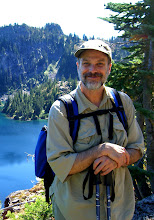Inspiration, like any sensation or feeling, comes and goes. It is possible to practice every day whether one feels inspired or not. Intention is different than inspiration; intention depends on connecting with your own experience, directly and personally -- connecting, and caring, and taking responsibility. Much of practice is just that connecting and reconnecting, taking the practice to heart.
Buddhism is a huge collection of various methods and techniques. They can be helpful in focusing energy and dealing with obstacles, but we also need to find the essence of practice so that methods and techniques don't get in the way. One way to approach the essence of practice is through the Tibetan Shangpa tradition's three doors to freedom: insight, compassion, and faith.
Insight is seeing how things are. Perhaps the two most fundamental insights are that things are impermanent and interdependent. Everything is impermanent, constantly changing. And everything is interdependent: nothing exists by itself, separate from causes and conditions. Recognize the never-ending flow of experience and events. And recognize that everything is utterly and completely dependent on particular causes and conditions.
Such recognition is challenging, but it is possible, and doesn't have to be complicated. can be simple. Practice keeping a continuous thread of attention on the ever-changing flow of sensations, feelings, and thoughts. Whenever you lose track of the flow, just return to recognizing it. Eventually the interdependence of things also becomes apparent: this leads to this; that leads to that.
What arises when we don't recognize and appreciate the truth that nothing is permanent or controllable? Struggle and suffering.
Compassion means recognizing, appreciating, and caring when struggle and suffering arise for ourself and others. We can't control our experience, but we can bring each instance of struggling to an end, and we can make our intention to live in ways that minimize suffering and tend toward balance and peace.
A direct and simple way to practice compassion: whenever suffering arises, recognize it, accept it, and care about it, regardless of whether anything can be done about it in the moment. Just recognizing and caring is profound and powerful -- allowing us to experience and respond to whatever arises.
Faith is the third door: the ability and willingness to open to whatever arises, to let go of attempts to control, to let things be what they are.
The capacity to live with faith is partly a result of insight and compassion. When we see how things are, and when we care, we tend to have some confidence to proceed. And even when we lack confidence, if we're still willing to take refuge in what is good and true, and we can draw hope and inspiration from ever-changing, interdependent experience itself.
Faith can also be cultivated. Again and again, simply aspire to be able to open to whatever arises. Form an intention to open and respond to whatever arises, without blame, without excuses, without trying to control, without hedging your bets. Practice trusting your inherent, indestructible ability to know and respond.
The three doors of insight, compassion, and faith overlap. Each door leads to the others. When we see clearly that everything is impermanent, we gain confidence that we can experience and survive whatever arises. As we see how things don't just arise randomly, but are dependent upon causes and conditions, of which we are just one, then compassion arises for how we get caught up in cycles of reaction and suffering. As we clarify the causes of suffering, we gain faith in our natural ability to make choices that make a difference.
If we follow this path continuously, we will find ourselves moving through all three doors, but we tend to have more affinity and access to one or two doors at any particular time in our life or phase of our practice. Keep using the doors that are open to you; your freedom depends on it.
May everyone be safe, free of suffering, healthy and happy, at ease in the world.





